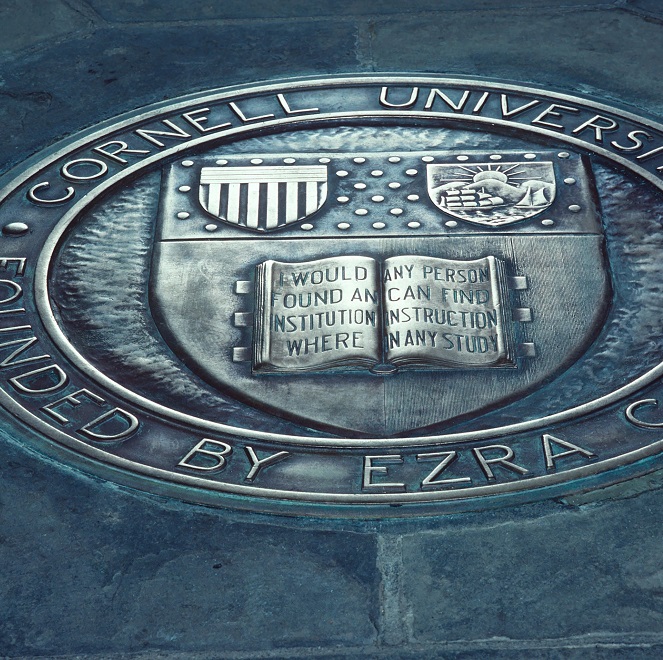News and Events
Full listing
May 31, 2012
May 31, 2012: Jiwoong Park, Assistant Professor of Chemistry and Chemical Biology and Kavli Institute at Cornell member, finds that the "stitching" between individual crystals of graphene affects how well these carbon monolayers conduct electricity and retain their strength.
May 31, 2012
May 31: The 2012 Kavli Prize Laureates in astrophysics, nanoscience and neuroscience were selected for making fundamental contributions to our understanding of the outer solar system, the differences in material properties between nano- and larger scales, and how the brain receives and responds to sensations such as sight, sound and touch.
May 30, 2012
May 30, 2012: High-temperature superconductivity starts with nanoscale electronic oases. J.C. Séamus Davis, the J.G. White Distinguished Professor in the Physical Sciences, and Kavli Institute at Cornell Member, has for the first time observed how a high-temperature superconductor evolves as its chemical composition is modified. The research was reported May 20 in the online edition of the journal Nature Physics.
May 29, 2012
May, 2012: Abe Stroock, Associate Professor of Chemical and Biomolecular Engineering and Member of the Kavli Institute at Cornell for Nanoscale Science, has published results in the May 28 Proceedings of the National Academy of Sciences that could lead to new techniques in regenerative medicine and better drug delivery strategies. Read the full PNAS article here (cover story, June 12th edition).
May 18, 2012
KIC instrumentation projects support the purchase, development, and use of novel scientific tools and approaches for probing the nanoscale. High-risk, high-reward projects are strongly encouraged.
TO DO: handle "project call" docx file (upload here, or not, or, find out): https://www.kicnano.cornell.edu/733/
May 4, 2012
May, 2012: J.C. Séamus Davis, Professor of Physics and Kavli Institute at Cornell Member, and his group have designed and conduced experiments to measure the role played by electron magnetism in an iron-based superconductor. To read the full article in Science, click here.
May 4, 2012
May, 2012: Dan Ralph, Professor of Physics and Kavli Institute at Cornell Executive Committee Member, has recently demonstrated the power of the spin Hall effect in the metal tantalum to generate spin currents intense enough to induce efficient spin-torque switching of ferromagnets at room temperature. To read the article in Science, click here.
February 7, 2012
February 7, 2012: The University of Tokyo (Todai) announced today the establishment of an endowment by The Kavli Foundation for the Institute for the Physics and Mathematics of the Universe (IPMU).
November 28, 2011
David Muller, co-director of the Kavli Institute at Cornell for Nanoscale Science and Professor of Applied and Engineering Physics was elected American Physical Society Fellow in Material Physics.
October 3, 2011
Cornell scientists Salman Avestimehr, David Erickson, John C. March and Kyle Shen are recipients of this year's Presidential Early Career Awards for Scientists and Engineers (PECASE) — the highest honor bestowed by the U.S. government on early-career science and engineering professionals.

